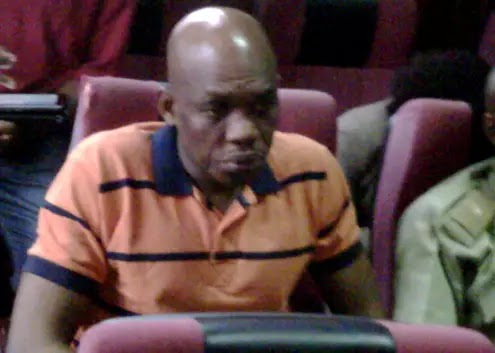The Nigerian Government on Tuesday asked Justice Gabriel Kolawole of the Federal High Court in Abuja, to put the alleged mastermind of the 2010 Independence Day bombing, Charles Okah, in chains.
Mr. Okah, who is standing trial on charges of terrorism alongside Obi Nwabueze, had on October 6 attempted to jump out of the court located at the third floor of a five-storey building.
At the resumed hearing, the prosecution, Alex Iziyon, a Senior Advocate of Nigeria, made an oral application requesting Mr. Okah to be chained to avoid a possible abortion of justice.
Mr. Iziyon, who referred the court to Section 269 of the Administration of Criminal Justice Act, 2015, urged it to grant the application to save the life of the accused person henceforth during proceedings.
“Where a defendant or an accused person misbehaves or displays misconduct in the course of proceedings in such magnitude, he or she should be placed under fetters.
“I urge the court to take judicial notice of the proceedings of Oct. 6 and grant our prayer,’’ he said.
Responding, Samuel Ozidiri, counsel to Mr. Okah, apologised to the court on behalf of his client and urged the court to discountenance the prosecution’s request.
He argued that the application was premature and not worthy of any sympathetic consideration, arguing that the prosecution failed to put the defence on notice before coming up with such an application.
Delivering a bench ruling on the application, Justice Kolawole said granting the prosecution’s request might turn out to be the greatest distraction in the suit.
He said: “By the provisions of section 6 subsection 6 paragraph 8 of the 1999 constitution, this court, as one of the superior courts of record, created by the constitution, is imbued with discretionary jurisdiction.
“This can be exercised without the need for an application from the prosecution once it is of the view that the conduct of the 1st defendant (Okah) is such that it may impede a smooth administration of proceedings.
“I have therefore decided to pull back the court’s exercise of discretionary jurisdiction on the apologies given by the defence counsel.
“But the powers to make any of the orders prescribed in Section 269 and 71 of the ACJ Act, are exercisable once the court forms the view that the 1st defendant needs to be restrained.
“Okah may see this as perhaps the last opportunity not to test the resolve of this court to exercise such powers that are conferred on it by both the constitution and the ACJ Act,’’ Mr. Kolawole said.
The Judge adjourned the suit till October 27 for continuation of trial.
(NAN)

